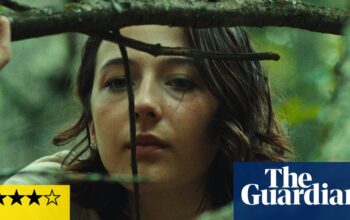11. The Angelic Conversation (1985)
Judi Dench beautifully recites 14 Shakespeare sonnets in a 77-minute film filled with homoerotic imagery. The mesmerizing visuals are accompanied by compositions from Benjamin Britten and experimental band Coil, creating a romantic and dreamy atmosphere. Although it may not have the same impact as Jarman’s renowned queer works that boldly fought against oppression with both anger and beauty, Dench’s readings and the hazy imagery complement each other perfectly.
10. Jubilee (1978)
Jenny Runacre stars as Elizabeth I in Jarman’s bold second film, where she travels through time to punk-era Britain and encounters a chaotic and aggressive society. While the film received mixed reviews and even faced criticism from Vivienne Westwood, the clever casting of Toyah Willcox and Adam Ant, as well as the impressive set pieces such as Jordan’s memorable rendition of Rule Britannia, provide moments of enjoyment amidst the chaotic narrative.
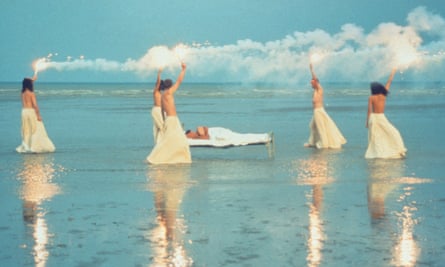
Display the image in full-screen mode.
9. The Garden (1990)
Jarman’s physical well-being was declining as he created this introspective and avant-garde movie, filmed at Prospect Cottage and his renowned garden on the ethereal shores of Dungeness, Kent, where he spent his last days. Shot using Super 8 technology, the film is a lyrical exploration of Jarman’s thoughts on non-normative identities in the 1900s, intertwined with religious symbolism, both unsettling and uplifting at times.
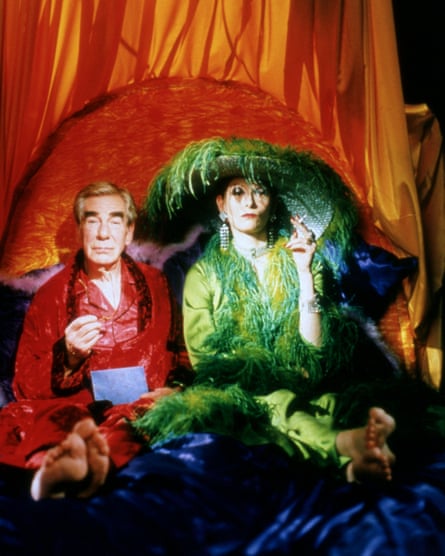
Display the image in full screen mode.
8. Wittgenstein (1993)
Jarman’s funniest film is a playful chamber piece that considers moments from the life of philosopher Ludwig Wittgenstein. Wittily played by Karl Johnson, Wittgenstein emerges as a likably crabby eccentric, arguing philosophy with John Maynard Keynes, Bertrand Russell and even a spirited Martian, while struggling (according to Jarman) with his own homosexuality. A fun if minor piece in Jarman’s filmography.
7. Caravaggio (1986)
Jarman’s most beautiful film, and perhaps his most critically acclaimed, queers the life of Italian Baroque painter Caravaggio (Nigel Terry). It features strong early performances from Sean Bean, Dexter Fletcher and, in the first of her many collaborations with Jarman, Tilda Swinton, while the recreations of the artist’s mastery of chiaroscuro are utterly gorgeous.
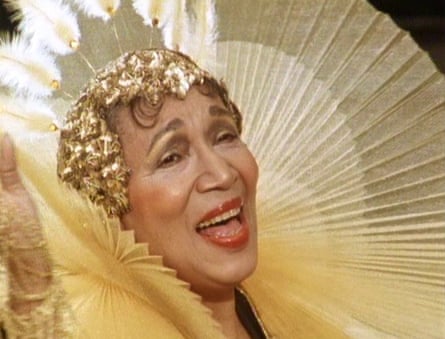
6. The Tempest (1979)
Jarman’s adaptation of The Tempest showcases the director’s playful approach to Shakespeare. Jack Birkett delivers a humorous performance as Caliban and Christopher Biggins impresses as the drunken seaman Stephano. The film culminates in a beautiful musical number, with Elisabeth Welch enchanting a captivated audience of sailors with her rendition of “Stormy Weather.”
5. Sebastiane (1976)
Jarman’s first film, based on the story of Saint Sebastian, depicts him as an outcast in a distant garrison where he is desired by the aggressive male soldiers. The movie is in Latin with English subtitles, focusing on male figures from a proudly homosexual perspective. This groundbreaking approach was unprecedented in British cinema.
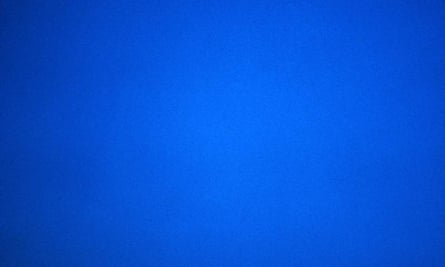
4. Blue (1993)
Jarman’s last film was created while he was facing partial blindness due to complications from Aids. Despite this, he produced his most experimental piece – a 79-minute shot featuring a blue background. Over this, Jarman’s thoughts on life and impending death are narrated by some of his frequent collaborators, accompanied by music from Simon Fisher Turner. This film is known for its powerful impact on viewers.
3. War Requiem (1989)
Jarman’s combination of Benjamin Britten’s choral piece and dramatized portrayals of wartime suffering, accompanied by footage from the first world war, is truly impressive. Swinton delivers a powerful, wordless portrayal of a nurse impacted by the war, and the film also includes the last on-screen appearance of Laurence Olivier. The poetic depiction of the atrocities of war and the inclusion of references to poet Wilfred Owen make it a perfect complement to Terence Davies’ Benediction (2021).
2. The Last of England (1987)
Jarman’s merciless attack on Thatcher’s Britain still shocks today, depicting England as a totalitarian hell through disturbing, often violent imagery. The stunning final sequence, of a screaming, grieving bride (Swinton) ripping off her wedding dress, is particularly disturbing. The film is a tough watch but a necessary one; its depiction of a viciously cruel, dying Britain evokes a warning from the recent past.
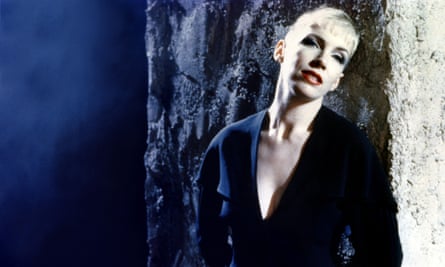
1. Edward II (1991)
Jarman’s version of Christopher Marlowe’s Edward II highlights his strengths, including his playful take on a traditional text, his talent for creating impactful films with limited resources, and his celebration of homosexual relationships despite his disdain for societal homophobia. The film makes daring decisions that are executed successfully, such as featuring a group of gay activists and incorporating a romantic musical performance by Annie Lennox. It also reimagines the gruesome torture and murder depicted in the original text, giving the characters a rare happy ending in modern queer cinema.
Source: theguardian.com


